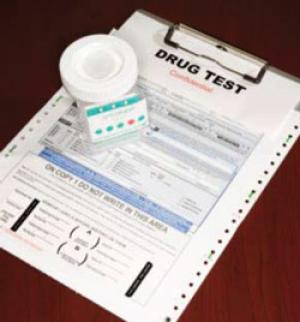Colorado has taken another giant step toward establishing a legal, regulated marijuana market for adults as Gov. John Hickenlooper signed into law a package of bills designed to implement the will of the voters.
The war on marijuana is disproportionately waged against Black America, the ACLU finds in a new report based on federal statistics. And it costs a whole lot of money and isn't achieving much.
Good Samaritan and Naloxone bills were signed into law in Vermont Wednesday.
The California Senate has approved an industrial hemp bill. Gov. Jerry Brown vetoed the last one in 2011, but this one is written to address the concerns he raised last time around.
The medical marijuana scene is hectic! Bill passing, raids happening, local officials pondering, and California dispensaries dwindling.
A bill that would allow medical marijuana dispensaries to operate in Nevada has passed the legislature and now awaits the governor's signature.
For the fourth time in recent years, the New York Assembly has approved a medical marijuana bill. Each time before, it died in the state Senate. Now, the pressure is on for a different outcome this time around.
Medical marijuana has passed both houses of the New Hampshire legislature, but there are differences that will have to be resolved in conference committee.
Texas Democrats managed to kill a welfare drug testing bill, but were unable to stop an unemployment benefits drug testing bill. It now awaits the signature of Gov. Rick Perry (R).
France's first supervised drug injection site is coming to Paris and should be open by the fall, local officials said Thursday.
A Peruvian government push into a remote area to eradicate coca production there is being met by calls for armed resistance.
A Fort Worth man sleeping on his couch ended up being tasered to death by police in a drug raid in which no drugs were found.
It's judges gone wild! Plus sticky-fingered narcs, lying narcs, crooked deputies, and more!
StoptheDrugWar.org needs your support to continue our work during the most important time in drug reform we've ever seen. We have gifts to send you too, with donations of $15 or more.
Interns are making an important difference fighting the good fight with us at StoptheDrugWar.org.
In a public ceremony at the state capitol in Denver Tuesday, Colorado Gov. John Hickenlooper (D) signed into law four bills that will establish a legal, regulated marijuana market for adults and begin the development of a regulatory framework for industrial hemp production.
The package of bills had passed the legislature earlier this month in accord with the requirements of Amendment 64, which won with 55% of the popular vote last November. That groundbreaking vote led
Hickenlooper to sign an order legalizing marijuana possession and to appoint an Amendment 64 Implementation Task Force late last year, which provided guidance to the legislature. That guidance informed the legislation that followed.
House Bill 1317 and Senate Bill 283 create the framework for regulations governing marijuana retail sales, cultivation, and product manufacturing. Under the provisions of Amendment 64, the Colorado Dept. of Revenue has until July 1 to develop the specific regulations necessary for implementation.
House Bill 1318 enacts a 10% special sales tax on retail sales of non-medical marijuana (in addition to standard state and local sales taxes) and a 15% excise tax on wholesale sales of non-medical marijuana. Voters must approve the new taxes this November in accordance with Colorado's Taxpayer Bill of Rights (TABOR). More than 75% of Colorado voters would support such a proposal, according to a survey conducted last month by Public Policy Polling.
Senate Bill 241 initiated the development of a regulatory framework for the commercial cultivation, processing, and distribution of industrial hemp.
"We applaud Gov. Hickenlooper for the initiative he has taken to ensure the world's first legal marijuana market for adults will entail a robust and comprehensive regulatory system" said Mason Tvert, director of communications for the Marijuana Policy Project, who served as an official proponent of Amendment 64 and co-director of the campaign. "This marks another major milestone in the process of making the much-needed transition from a failed policy of marijuana prohibition to a more sensible system of regulation."
"Despite not supporting Amendment 64, our governor has shown true leadership by ensuring his office and the general assembly implemented the will of the voters," said Art Way, senior drug policy manager for Colorado for the Drug Policy Alliance. "These implementing pieces of legislation signed by the governor are the beginning of statewide efforts to bring marijuana above ground in a manner beneficial to public health and safety."
"Colorado is demonstrating to the rest of the nation that it is possible to adopt a marijuana policy that reflects the public's increasing support for making marijuana legal for adults," Tvert said. "Marijuana prohibition is on its way out in Colorado, and it is only a matter of time before many more states follow its lead."
"The governor has signed off for Colorado to take the lead on taxing and regulating marijuana for adult use," said Way. "I'm confident our state has, and will continue to do it responsibly. After all, we have experience and expertise in comprehensively regulating medical marijuana on a large scale. We have a blueprint."
back to top
Black Americans are nearly four times more likely to get busted for marijuana possession than white ones, even though both groups smoke pot at roughly comparable rates, the ACLU said in a report released Tuesday. The report, "The War on Marijuana in Black and White: Billions of Dollars Wasted on Racially Biased Arrests," is based on the annual FBI Uniform Crime Report and US Census Bureau Data.

Blacks are 3.7 times more likely to get busted for marijuana possession than whites. (aclu.org/marijuana)
The disparity in arrest rates is startlingly consistent, the report found. In more than 96% of the counties covered in the report, blacks were arrested at higher rates than whites. Racial disparities in pot busts came in large counties and small, urban and rural, wealthy and poor, with large black populations and with small ones.
In some counties, the disparity rose to 15 times more likely, and in the Upper Midwest states of Illinois, Iowa, and Minnesota, blacks were eight times more likely to be arrested for pot possession than whites. Nationwide, blacks were 3.73 times more likely to get arrested for marijuana than whites.
And it's getting worse, not better. The report found that even though the racial disparities in marijuana arrests existed 10 years ago, they have increased in 38 states and the District of Columbia.
"The war on marijuana has disproportionately been a war on people of color," said Ezekiel Edwards, director of the ACLU Criminal Law Reform Project and one of the primary authors of the report. "State and local governments have aggressively enforced marijuana laws selectively against black people and communities, needlessly ensnaring hundreds of thousands of people in the criminal justice system at tremendous human and financial cost."
In budgetary terms, that cost to the states was $3.61 billion in 2010 alone, the report found. During the decade the report studied, despite aggressive enforcement and rising marijuana arrest rates, all those arrests failed to stop or even diminish the use of marijuana, and support for its legalization only increased.
"The aggressive policing of marijuana is time-consuming, costly, racially biased, and doesn't work," said Edwards. "These arrests have a significant detrimental impact on people's lives, as well as on the communities in which they live. When people are arrested for possessing even tiny amounts of marijuana, they can be disqualified from public housing or student financial aid, lose or find it more difficult to obtain employment, lose custody of their child, or be deported."
The report recommends legalizing, taxing, and regulating marijuana, which it said would eliminate racially-targeted selective enforcement of marijuana laws, save the billions of dollars spent on enforcing pot prohibition, and raise badly needed revenues by taxation. If legalization is not doable, then decriminalization, and if not decriminalization, then lowest prioritization.
The ACLU also calls in the report for reforms in policing practices, including not only ending racial profiling, but also constitutionally-suspect stop-and-frisk searches, such as those embraced with such gusto by the NYPD in New York City. It also crucially recommends reforming federal law enforcement funding streams, such as the Edward Byrne Justice Assistance Grant Program, that encourage police to make low-level drug busts by using performance measures that reward such arrests at the expense of other measures.
back to top
Vermont Gov. Peter Shumlin (D) Wednesday signed into law two bills aimed at reducing the toll of drug overdose deaths in the state. House Bill 65 provides limited legal protection for those who witness or experience a drug or alcohol overdose and summon medical assistance, while House Bill 522 permits prescription of the opiate-antagonist drug Naloxone to third parties and provides limited immunity for such prescription as well as administration of the drug.
"We cannot break our focus on this critical issue, because drug addiction harms not just the individuals ensnared in it but also our families and communities,"
Shumlin said. "I pledge to continue to work with mayors, law enforcement, medical and mental health experts and legislators to fight this problem, and will be focusing between now and January on the next steps in this battle."
HB 65, the "Good Samaritan" bill is the broadest of its kind. While 13 states and the District of Columbia have enacted such bills, Vermont's is the first to provide protection from arrest or all drug offenses -- not just possession -- as well as protections against asset forfeiture. It also provides protection against the revocation of parole or probation or the violation of restraining orders for people who seek help for overdose victims.
"Criminalization should not be a barrier to calling 911," said Lindsay LaSalle, an attorney with the Drug Policy Alliance. "The Vermont legislature has aptly recognized that saving a life is of paramount importance to the prosecution of any nonviolent drug crime."
HB 522 is the bill that expands access to Naloxone, which is credited with reversing more than 10,000 overdoses nationwide since 1996. The bill also provides immunity from civil or criminal liability for Naloxone providers.
"Implementation of these new laws by public health and law enforcement officials is critical to improving public willingness to immediately seek medical assistance for overdoses involving illegal drugs and alcohol use as well as to administer Naloxone to opioid overdose victims," said LaSalle.
back to top
A bill that would set up provisions for growing industrial hemp in the Golden State passed the state Senate Tuesday on a unanimous vote. It now heads to the state Assembly.

Is the sun about to rise on California hemp? (votehemp.org)
Hemp bills have passed out of the legislature in 2002, 2006, 2007, 2008, and 2011, only to fall prey to gubernatorial vetoes. Vetoes have come under both Democratic and Republican governors, with
Gov. Jerry Brown vetoing the most recent bill because hemp production remains illegal under federal law.
The current bill, Senate Bill 566, was written to assuage the concerns Brown expressed in his 2011 veto message. It will not take effect until hemp production is authorized under federal law.
"The California Industrial Hemp Farming Act will create new jobs and economic opportunities for many farmers and manufacturers across California," said sponsor Sen. Mark Leno (D-San Francisco). "Hundreds of consumer products containing hemp are made in the Golden State, but the manufacturers of these goods are forced to import hemp seed, oil, and fiber from growers in Canada, Europe, and China. This new bill is carefully crafted to eliminate conflicts with federal law and has the support of the California State Sheriffs' Association."
"The prospects for SB 566 are very good. Unlike past industrial hemp bills, this session's version does not go into effect until it is authorized by federal law," said Patrick Goggin, California legal counsel for the industry group Vote Hemp. "We feel confident that California will finally have an industrial hemp law later this year ensuring that California farmers are ready and able to cultivate hemp upon federal approval."
Domestic retail sales of hemp food and body care products reached $156 million last year, and the Hemp Industries Association estimates that all hemp products sales, including clothing, auto parts, and building materials, totaled at least $500 million.
Companies that use hemp in their products, such as Escondido-based Dr. Bronner's Magic Soaps, currently have to import it because of the federal ban on hemp production.
"Dr. Bronner's currently purchases twenty tons of hemp oil each year from Canada. We look forward to the day that we can meet our supply needs from hemp produced right here in our home state," said company president David Bronner.
Now, Bronner and other hemp entrepreneurs are one step closer to that day.
back to top
The medical marijuana scene is hectic! Bill passing, raids happening, local officials pondering, and California dispensaries dwindling. Let's get to it:
CaliforniaOn May 21, the Lakeport city council gave first approval to a cultivation ordinance that would require grows be conducted within detached structures on residential properties. The council will hold the second reading of the ordinance at its June 18 meeting. The document before the council on Tuesday night also prohibits outdoor cultivation and requires grows to be contained in accessory outdoor structures. However, it also puts the emphasis on complaint-driven enforcement.
On May 22, the Earth Choice Collective in Fresno closed its doors after a local TV station blew the whistle on the below-the-radar dispensary. Undercover narcotics officers served Earth Choice Collective with a notice to vacate several weeks ago, but it had remained open until the TV station aired its report.
On May 25, Anaheim authorities reported that 10 of 11 dispensaries had complied with orders to close their doors. Anaheim ordered all dispensaries to close in the wake of the California Supreme Court ruling upholding the ability of localities to ban them. One remained open and was facing fines of up to a $1,000 a day.
Last Wednesday, San Bernardino police shut down another dispensary. They, too, were acting in response to the California Supreme Court ruling. More than 100 mason jars filled with marijuana were seized at the SBPC dispensary, and several workers and customers were detained temporarily.
Last Thursday, DEA agents and San Bernardino County deputies raided two dispensaries and five homes associated with them. Targeted were the Green Oasis Collective dispensaries in Yucaipa and San Bernardino. Five people were arrested on a variety of charges, including possession of pyrotechnic explosive devices, possession of meth, and various marijuana offenses.
Last Friday, police in Garden Grove began fining medical marijuana delivery services. The move came after the services sprang up in the wake of the city's ban on dispensaries last month. They are fining the delivery businesses $1,000 a day. One dispensary, OrganaCann Wellness Centers, switched to delivery mode after the ban and reported receiving $3,000 in fines, but is vowing to vigorously defend itself.
Also last Friday, Stockton dispensary operator Matthew Davies pleaded guilty to federal marijuana charges. He had argued that his store in Stockton operated in accordance with California laws, after working extensively with accountants and lawyers before opening the business. He faces a mandatory minimum five-year prison sentence.
Also last Friday, a statewide dispensary regulation bill failed to advance, but its sponsor, Rep. Tom Ammiano (D-San Francisco) said the bill lives and he is talks with members of the Senate to advance it.
On Monday, the Healdsburg city council voted to form a task force to study cultivation issues. The task force will consider whether outdoor grows will be allowed, or whether they should be confined indoors. Police Chief Kevin Burke had proposed guidelines in response to neighborhood complaints about backyard grows, and the Planning Commission had recommended allowing patients to grow up to 12 mature plants and 24 immature ones, but limited grows to indoors and not within 300 feet of schools, churches, hospitals, child care and youth centers. But after the guidelines were publicized, they met harsh criticism, thus, the task force.
District of Columbia
As of Monday, DC medical marijuana patients were still waiting to get their medicine. Two dispensaries and three grow operations have been approved by District officials, but the District Department of Health has yet to give doctors the authority to recommend marijuana to their patients. A spokeswoman for the Department of Health said marijuana dispensaries would likely open in the middle of June.
Michigan
Last Tuesday, medical marijuana supporters held a press conference in Detroit to publicize the imminent imprisonment of several Michigan patients and caregivers. One, Jerry Duval, a kidney-pancreas transplant patient with coronary artery disease, has been sentenced to 10 years in federal prison and must report next week. Three other Michigan cultivators, Dennis Forsberg, 59, his son Lance Forsberg, 32, and Ryan Basore, 36, who were sentenced to 3-4 years in prison surrendered last Thursday. They were all convicted in federal court without being able to present evidence that they were complying with state law.
Montana
Last Wednesday, federal prosecutors appealed the sentence of a medical marijuana provider because they thought it was not stiff enough. They appealed the two-year prison sentence given to former University of Montana quarterback Jason Washington, who was convicted on federal charges for his role in a dispensary operation legal under state law. Prosecutors have also appealed the sentences of three other medical marijuana defendants out of 33 convicted in the wake of the 2011 federal crackdown in the state.
Nevada
On Monday, a medical marijuana dispensary bill passed the state legislature. The Assembly approved it the previous week, and the Senate approved it Monday. It now goes to the governor. If he signs it, up to 66 dispensaries will be allowed in the state, with up to 40 in Las Vegas and 10 in Reno.
New Hampshire
Last Thursday, the Senate approved a medical marijuana bill, but with amendments designed to placate Gov. Margaret Hassan (D) that advocates say will make the bill unworkable. The Assembly had already passed the bill; now a conference committee must try to reconcile the two versions.
New York
Last Thursday, more than 600 New York physicians came out for pending medical marijuana legislation. They signed a statement affirming that doctors should not be punished for recommending the use of marijuana for seriously ill people, and that seriously ill people should not be subject to criminal sanctions for using marijuana if the patients' physicians have told them such use may be beneficial. The bill also has the support of the state’s leading medical organizations, including the New York State Nurses Association, The Hospice and Palliative Care Association, Pharmacist Society of the State of New York, among others.
Last Friday, New York City Mayor Michael Bloomberg trashed medical marijuana, calling it "one of the greatest hoaxes of all time." The former pot-smoker's comments came as the legislature is considering the medical marijuana bill.
On Monday, the medical marijuana bill passed the Assembly. It now goes to the Senate, where three previous medical marijuana bills approved by the Assembly in recent years have died. But the pressure is on.
Ohio
Last Wednesday, the sponsor of a medical marijuana bill testified on its behalf, but acknowledged that it is going nowhere in the Republican-controlled legislature. Instead, Rep. Bob Hagan (D-Youngstown) is urging support for a constitutional amendment on the issue.
Oregon
Last Thursday, DEA agents and local law enforcement raided four southern Oregon dispensaries. Raiders hit the Greener Side in Eugene and three Medford dispensaries. Several people were arrested.
Also last Thursday, the state legislature approved adding PTSD to the list of ailments for which medical marijuana can be used. The Oregon House passed Senate Bill 281 36-21, following a 19-11 vote in the Senate. The bill awaits Gov. Kitzhaber's signature.
South Carolina
On May 23, an attempt to legalize medical marijuana in the state failed in the House. Rep. Todd Rutherford (D-Columbia) tried to amend a bill dealing with controlled substances to add marijuana to the list of drugs that doctors could prescribe, but his amendment was ruled out of order.
Washington
On Monday, it was revealed that the DEA has sent threatening letters to 41 Seattle-area dispensaries that have effectively closed some of them. At least one Spokane dispensary has also received a threat letter, but from the US Attorney, not the DEA.
[For extensive information about the medical marijuana debate, presented in a neutral format, visit MedicalMarijuana.ProCon.org.]
back to top
Thirteen years after Nevada voters approved medical marijuana, the state legislature has passed legislation that would set up a system of dispensaries so patients have an alternative to growing their own medicine. The legislation passed the state Senate last week and was approved by the Assembly Monday, the last day of the session.
The bill now goes to the desk of
Gov. Brian Sandoval (R), who has said he will consider it.
"It's time," said Sen. Tick Segerblom (D-Las Vegas), the measure's primary sponsor. "People that are sick and need it -- they'll be able to buy it, and they don't need to worry about violating the law."
Senate Bill 374 establishes a regulatory framework for dispensaries in the state. It also caps their numbers based on county populations. Counties with fewer than 55,000 residents would have one dispensary; counties with between 55,000 and 100,000 residents would have two; Washoe County (Reno) would have 10, and Clark County (Las Vegas) could have up to 40.
The bill also contains provisions for fees and taxes, and it would eliminate patients' ability to grow their own medicine after 2016.
If the governor signs the bill, Nevada would be the 14th medical marijuana state to allow for its sale through dispensaries. Nineteen states and the District of Columbia currently allow medical marijuana, and a medical marijuana bill has passed in Illinois and awaits the governor's signature.
[For extensive information about the medical marijuana debate, presented in a neutral format, visit MedicalMarijuana.ProCon.org.]
back to top
A bill to create a tightly-regulated medical marijuana program passed the New York Assembly Monday on a 95-38 vote. The bill now goes to the Senate, where three previous medical marijuana bills approved by the Assembly have died.
Advocates are turning up the heat on the Senate to finally approve the bill this year.
"This is a medication, far safer than many of the medications we already use, that has been proven effective for chronic and neuropathic pain, appetite stimulation, and nausea," said Dr. Howard Grossman, a New York City-based physician and chair of NY Physicians for Compassionate Care. "As doctors, we want to do what's best for our patients and that includes recommending medical marijuana for some patients. We urge the Senate to do the sensible and humane thing and pass the Compassionate Care Act now."
"New Yorkers living with cancer, multiple sclerosis, HIV/AIDS and other serious illnesses have waited long enough," said Gabriel Sayegh, state director of the Drug Policy Alliance New York Policy Office. "This is a simple matter of compassion. This is the fourth time the State Assembly has passed a medical marijuana bill. Now it's long past time for the State Senate to act. The science is clear. The moral and ethical needs are obvious. The only thing holding this up is the Senate. Listen to the science, to healthcare practitioners, and to the vast majority of New Yorkers who support this proposal. It’s time for the Senate to pass the Compassionate Care Act."
The Compassionate Care Act (Assembly Bill 6357) would allow practitioners to certify patients with serious, debilitating illnesses to be able to use medical marijuana to relieve their symptoms. Patients or their caregivers could possess up to 2 ½ ounces. Medical marijuana would be available through state-registered organizations.
The vote came just days after New York City Mayor (and former pot-smoker) Michael Bloomberg spoke out against medical marijuana, calling it "one of the greatest hoaxes of all time."
That opinion is not shared by New York residents, 82% of whom supported medical marijuana in a recent Siena poll, including 81% of both Republicans and Democrats. Nor is it shared by more than 600 Empire State physicians who agreed with NY Physicians for Compassionate Care that New Yorkers should be able to use medical marijuana. They announced their support for the bill last Thursday, a day before Bloomberg commented.
The bill has the support of hundreds of patients and providers and dozens of organizations across the state, as well as wide support from healthcare providers and organizations, such as the New York State Nurses Association, the Collaborative for Palliative Care, GMHC, New York State Pharmacists Society, NY Physicians for Compassionate Care, and the Hospice and Palliative Care Association of New York.
"We applaud the Assembly for taking this step and passing the Compassionate Care Act. The New York State Nurses Association supports this legislation because it creates a carefully controlled system allowing seriously ill New Yorkers access to the therapeutic and palliative benefits of medical marijuana under the supervision of their healthcare provider," said Jill Furillo, the association's executive director.
Now, all eyes are on the state Senate.
[For extensive information about the medical marijuana debate, presented in a neutral format, visit MedicalMarijuana.ProCon.org.]
back to top
The New Hampshire Senate last Thursday approved medical marijuana legislation, but removed language allowing patients to grow their own and protecting them from arrest before state ID cards are issued. The House in March had approved the bill with those provisions, so now it goes before a conference committee to try to reconcile differences.
The Senate version also came with several other amendments, including reducing the number of state-licensed dispensaries, requiring that patients get
written permission from a property owner before being able to use medical marijuana on privately owned land, and eliminating post-traumatic stress disorder (PTSD) from the list of eligible conditions for marijuana use.
Sponsored by Rep. Donna Schlachman (D-Exeter), House Bill 573, would allow state residents with serious illnesses, such as cancer, multiple sclerosis, and HIV/AIDS, to obtain and use medical marijuana if their doctors recommend it. Patients would be able to obtain their medicine through one of four non-profit, state-licensed dispensaries.
The Senate changes to the bill were made to assuage the concerns of Gov. Maggie Hassan (D), who has said she supports medical marijuana legislation, but who heeded the fears of law enforcement officials that allowing patients to grow their own could result in diversion and make law enforcement's job more difficult.
According to advocates, the Senate version of the bill not only regresses from the House version, but it also contains errant language that would render the program unworkable. The conference committee will seek to address those problems.
"We applaud the senators for adopting this compassionate and much-needed legislation despite its imperfections," said Matt Simon, a New Hampshire-based legislative analyst for the Marijuana Policy Project. "In time, if a few simple problems are fixed, this bill will give patients much-needed relief. The amendments made at the behest of our governor will leave patients out in the cold for at least two years, having to choose between needlessly suffering or turning to the underground market to find their medicine. Patients will continue to make the case to Gov. Hassan for why this bill needs to be substantially improved, and she has said she will continue to listen."
"After waiting years for legal protections and access to medical marijuana, New Hampshire patients are grateful for the legislature's action and hopeful that this time the governor will make it a reality," said Mike Liszewski, policy director with Americans for Safe Access (ASA), the country's leading medical marijuana advocacy group. "Patients, however, still intend to urge members of the conference committee to consider the importance of patient cultivation, especially as the program gets up and running over the next 18 months."
Now, it's up to the conference committee and the governor.
[For extensive information about the medical marijuana debate, presented in a neutral format, visit MedicalMarijuana.ProCon.org.]
back to top
The Texas legislature last week approved a bill that would require some applicants for unemployment benefits to undergo drug testing, but another bill that would have required drug testing for some welfare applicants (Senate Bill 11) died in the House after Democrats managed to block it from coming to a vote.
Gov. Rick Perry (R) had called on the legislature to pass both bills. It is almost certain that he will sign the unemployment drug testing bill into law.
The unemployment drug testing bill, Senate Bill 21, would require some unemployment applicants to undergo a written screening for substance abuse, and if the written screening indicates likely drug use, the applicant would have to pass a drug test to receive benefits.
The bill singles out workers in occupations that already require drug testing. Those occupations are those listed by the US Department of Labor as "an occupation that regularly conducts pre-employment drug testing."
Applicants who are already enrolled in drug treatment programs or who enroll in such programs after a failing a drug test would still be eligible for benefits.
"The intent of this bill is to help lift people up and help them towards a better way," said Republican Brandon Creighton, the House author of the bill, "and at the same time making sure that the unemployment benefits fund is solvent and there to help those that need it the most."
Democrats argued that there is no reason to think people who are laid-off from their jobs are more likely to use drugs than anyone else, to no avail.
"Losing a job is a very traumatic thing," Democratic Rep. Chris Turner said during debate in the House last week.. "Aren't we just adding insult to injury in what is a very traumatic situation already?"
Eight states have passed legislation requiring drug testing for public benefits recipients. They are Arizona, Florida, Georgia, Kansas, Missouri, Oklahoma, Tennessee, and Utah. In most of those states, drug testing is required only if state officials suspect possible drug use. Florida and Georgia laws both mandate suspicionless drug testing, but the Florida law has so far been blocked by the courts, and the Georgia law is on hold pending resolution of the Florida case.
back to top
France's first supervised injection site (SIJ) for hard drug users will open in Paris by this fall, local officials announced Thursday. It will be located near the Gare du Nord train station, an area of open hard drug use and sales and petty crime.

injecting at a supervised injection site in Vancouver (vch.ca)
The
SIJ will be ready "by the autumn,"
Remi Feraud, mayor of the
10th arrondissement, where it will be located, told reporters. The site is "sufficiently far from residential areas, schools and shops to not pose a serious risk of public disorder," he said.
The project is "aimed at reducing the number of people taking drugs in the street, in common areas of apartment buildings and other areas such as car parks," added deputy mayor Myriam El Khomri. The area would be given a boosted police presence, she added, to prevent dealers from selling their wares in the proximity.
While supervised injection sites are a proven harm reduction measure, local officials were downplaying that aspect and instead highlighting the public order and safety effects. That could be a bid to blunt opposition and hostility from local residents' associations, who have said they fear the SIJ would further degrade the area, described as "an open air drug market."
While this will be the first SIJ in the City of Light, Paris already has a needle exchange program. It handed out more than 300,000 syringes last year, half of them in the Gare du Nord.
SIJs already operate in a number of European countries, include Germany and Switzerland, as well as Australia and Canada.
back to top
Remnants of Peru's Shining Path guerrillas are calling on coca farmers in the country's south-central coca-producing region to take up arms to defend their crops against government eradicators. The call came in a recording made by the rebels and broadcast on local radio, according to a report in the Lima daily El Comercio.

drying coca leaves in Peru's Ayacucho province (Phillip Smith)
The radio broadcast in
Ayacucho province came last week, just one day after
Sendero Luminoso guerrillas handed out pamphlets in nearby
Huancavelica calling on coca farmers to confront eradicators "with arms in hand."
The guerrilla remnants, a mere shadow of the fearsome insurgency that cost the country some 75,000 lives in the 1980s, operate in Peru's most productive coca-producing region, a series of ultra-montane river valleys known by its Spanish acronym as the VRAEM (Apurimac, Ene, and Mantaro River Valleys). The current Senderistas have shed the hyper-Maoist ideology of their long-imprisoned leader Comrade Gonazalo (Abimael Guzman) and now operate as well-armed and often uniformed protectors of producers and traffickers in the coca and cocaine trade.
Peru and Colombia are currently the world's largest coca and cocaine producers, with Bolivia in third place.
Peruvian President Ollanta Humala has pledged to wipe out the Senderistas in the VRAEM and has vowed that eradication will take place there this year. His government has already begun building military bases in the remote region.
Peruvian soldiers and police are already being targeted by Senderistas in the VRAEM. Dozens have been killed in guerrilla attacks in the past two years alone.
back to top
A Forth Worth, Texas, man died after being subjected to electric shocks by police executing a drug search warrant earlier this month. Jarmaine Darden, 34, becomes the 14th person to die in US domestic drug law enforcement operations so far this year.

Jarmaine Darden (family photo)
According to Dallas-Fort Worth
CBS 11 TV, Fort Worth police "zero tolerance officers" were searching for cocaine when the incident happened. They didn't find any, but they did find
Darden asleep on his couch. The 350-pound
Darden suffered from asthma and had to sleep sitting up, family members said.
A police report said Darden resisted arrest -- although it is unclear what he was being arrested for, given that no drugs were found on him -- and was shocked at least twice by a taser. He then stopped breathing and died. Two other people present in the home were arrested for drug offenses, but both just for possession -- one for marijuana, another for an unidentified "controlled dangerous substance."
Family members who were present disputed the police account.
"They physically pulled him off the couch because, like I said, he was asleep. They pulled him off the couch and they tried to put him on his stomach. He can't breathe on his stomach. He don't even lie on the bed on his stomach," said Donna Randle, the mother of the victim. "He had his hands behind his back the whole time. But me and about five other people were hollering the whole time, 'He cannot breathe like that. Please handcuff him on his side,'" said Randle.
According to Eric Darden, the victim's brother, a police officer warned Jarmaine that if he didn't get on his stomach, they would tase him, and they did.
"I'm not even accepting the fact that he's gone. I'm waiting for him to drive up any minute. It's just not believable," said Randle, adding that he left behind two teenage sons.
Fort Worth police have yet to publicly comment on the death, but community leaders said Police Chief Jeff Halstead has promised to keep them informed as the department investigates.
Some people aren't waiting for the police. A Justice for Jarmaine Darden online petition asks that Fort Worth police be better trained in the use of tasers "to prevent serious injury and death." As of this writing, there are only 22 signatures on that petition. [Update: As of Wednesday, June 5, there are now 12,993 signatures.]
back to top
It's judges gone wild! Plus sticky-fingered narcs, lying narcs, crooked deputies, and more! Let's get to it:
In Philadelphia,
a Philadelphia police officer was arrested May 23 for stealing drugs and money from a suspected drug dealer. Officer Jeffrey Walker was arrested after an FBI sting operation in which agents recorded him bragging about how easy it was to rip off drug dealers. Walker and a federal informant concocted a scheme to plant cocaine in a suspect's car, then rob him. Walker did just that, arresting the suspect, then entering his home and stealing $15,000. He was arrested with the cash in hand. At last report, Walker was still in federal custody.
In Pittsburgh, a former Washington County judge was arrested May 24 on charges he stole cocaine from evidence in cases over which he presided. Paul Pozonsky abruptly resigned from the bench in 2012 and moved to Alaska after police checked evidence envelopes and found the cocaine had gone missing. Court officers said that Pozonsky had begun asking them to bring confiscated drugs into the courtroom, where they would be entered as evidence and kept by either the judge himself of members of his staff.
In Des Moines, an Iowa state narcotics agent was arrested May 26 on charges he forged the signature of a Polk County judge in a bid to shortcut an after-the-fact approval of a drug-related search warrant. Jonathan Borg, 39, allegedly forged the judge's signature as he returned with the warrant after conducting a search in a drug investigation where the charges have now been dropped because of his actions. He is charged with one count of felonious misconduct in office and is looking at up to five years in prison if convicted.
In Belleville, Illinois, a St. Clair county judge was arrested last Friday in relation to the cocaine overdose death of another St. Clair county judge while the pair partied together at a hunting lodge in March. Judge Michael Cook, 43, who presided over the county's drug court, was charged by federal prosecutors with possession of heroin and possession of a firearm while illegally using controlled substances. His colleague, Judge Joe Christ died of a cocaine overdose. A St. Clair County probation officer, James Fogarty, has been charged with selling cocaine to both judges. Judge Cook had handled more than 500 criminal cases since 2010; now, those found guilty can come back and seek new trials.
In Baltimore, a Baltimore police officer was arrested last Friday on multiple charges, including trying to sell heroin. Officer Ashley Roane, 25, went down in a sting operation, accepting cash payments and providing protection for a man she thought was a drug dealer, but who was actually an informant for Baltimore police and the FBI. She agreed to access law enforcement databases listing informants and other sensitive information for the drug dealer, and provided Social Security numbers to him as part of a scheme to obtain false tax refunds, prosecutors said. She's looking at a mandatory minimum 17 years in federal prison if convicted on all counts.
In New York City, an NYPD officer was convicted last Wednesday for faking paperwork to cover up his involvement in the unlawful search and arrest of two men. Isaias Alicea had stopped and arrested two men in Harlem last year and later falsely told his supervisors he saw them in a drug transaction. But surveillance images showed no transaction occurred and the charges against the men were dropped. He was convicted of official misconduct, a felony, and will be fired based on that felony conviction. Sentencing is set for next month.
In San Antonio, five Hidalgo County narcotics officers pleaded guilty last Wednesday to federal charges in a wide-ranging drug conspiracy. The five, all members of now-defunct drug task force called the Panama Unit, including the son of the county sheriff, acknowledged roles in a scheme to steal drug loads from street-level dealers and sell them to a man alleged to be a local trafficker. Jonathan Trevino a 29-year-old former Mission police officer and the son of Hidalgo County Sheriff Lupe Trevino, pleaded guilty to one count of drug conspiracy. Three other members of the unit, including ex-Hidalgo County Sheriff's deputies Salvador Joel Aguello, Claudio Alberto Mata, and Eric Michael Alacantar, also entered guilty pleas. The fifth man, Gerardo Mendoza Duran, is a former Hidalgo County Sheriff's deputy but was not assigned to the Panama Unit. He admitted last Wednesday that he had aided and abetted the group's plans to escort the drug loads. They're all looking at 10 years to life in federal prison.
In Tuscaloosa, Alabama, the former commander of the West Alabama Narcotics Task Force agreed to plead guilty last Friday to stealing at least $125,000 from drug proceeds seized by the unit. Jeff Snyder, 55, embezzled money that the task force seized between June 2010 and June 2012, according to a release from U.S. Attorney Joyce White Vance’s office. Snyder admitted to pocketing seized cash during drug raids and failing to log it into task force ledger books and deposit it in task force bank accounts. In his plea agreement, Snyder and prosecutors agreed to an 18 month federal prison sentence. That agreement has yet to be approved by a judge.
back to top
Dear friend,
StoptheDrugWar.org needs your help to continue our programs -- like this newsletter,
Drug War Chronicle -- during this most important time in the cause there has ever been.
Click here for some examples of how activists around the world rely on
Drug War Chronicle in their work.
As our thanks for your support, we continue our full set of membership offers, some of them available with donations of $15 or greater to our organization. We also continue to offer, with donations of $35 or more, "
Marijuana Legalization: What Everyone Needs to Know," authors of which were
recently hired to consult with the state of Washington on implementing legalization there.
The newest item is a pair of reports that highlight the US and international legal landscapes as legalization becomes a mainstream issue. (We'll send you both for the $15.) Though the text of each report can be found online, for $15 or more you can hold the nice printed copies -- the history in the making -- in your hands. They are:
- "On the Limits of Federal Supremacy: When States Relax (or Abandon) Marijuana Bans," a Cato Institute Policy Analysis by Vanderbilt law professor Robert Mikos, explores the limits in federal law and resources for enforcing marijuana prohibition in states that have legalized.
- "Governing the Global Drug Wars," a special report by London School of Economics IDEAS, details the history of the global prohibition regime; the obstacles it poses to nations seeking to explore legalization and other reforms, and efforts by nations and agencies to transform the system into one respecting public health and human rights.
We are also pleased to continue offering the following items (while supplies last), now also with donations of $15 or more:
- Emperor of Hemp DVD, about the life and work of Jack Herer (memorial tribute edition)
- StoptheDrugWar.org strobe light
- StoptheDrugWar.org stamp and ink pad
- StoptheDrugWar.org mouse pad
Though we offer many items for $15, I hope you will consider making a larger donation if you are able, or supplementing your initial gift with a monthly one. If the gifts are not important to you, I hope you'll consider sending a donation that's just for our work.
Donations can be tax-deductible, supporting our educational work, or non-deductible, supporting our lobbying work. (Note that selecting any gift items reduces the amount of your donation that is deductible -- which with a smaller gift amount can be most of it.) They can be made online on our web site by credit card or PayPal, or sent by mail to P.O. Box 18402, Washington, DC 20036. If you are donating by check, please make it payable to DRCNet Foundation (if tax-deductible) or Drug Reform Coordination Network (if not deductible).
If you wish to donate stock, the information to give your brokerage is Ameritrade, (800) 669-3900), DTC #0188, and account number 781926492 for tax-deductible gifts or 864663500 for non-deductible gifts -- please make sure to contact us if donating in this way.
Thank you for standing with us to stop the drug war's cruelties and meet the opportunity this time offers to make a brighter future. As recent events show: Time, and the truth, are on our side!
Sincerely,

David Borden, Executive Director
StoptheDrugWar.org
Washington, DC
http://stopthedrugwar.org
back to top
StoptheDrugWar.org works for an end to drug prohibition worldwide and an end to the "drug war" in its current form. We believe that much of the harm commonly attributed to "drugs" is really the result of placing drugs in a criminal environment. We believe the global drug war has fueled violence, civil instability, and public health crises; and that the currently prevalent arrest- and punishment-based policies toward drugs are unjust. Please visit our web site, and please read more about us.
We are seeking Legislative, Writing/Research, Web Content, Information Technology, and Admin/Finance interns (potentially still this semester, depending on your interests, definitely for the summer). Communications may also be applicable to current organizational projects. Preference will be given to applicants with some demonstrated experience the relevant fields, and to applicants in the Washington, DC area. However, consideration will also be given to enthusiasm for drug policy and criminal justice reform.
Note that StoptheDrugWar.org internships are unpaid. We reimburse for metro fare. Please also note that the organization has functioned as a "virtual office" environment since spring 2011. Staff will meet with interns on a regular basis during the semester, and can be available to meet and work together on a weekly or even daily basis, but this will happen in places like coffee shops or campuses.
In order to help our interns forge ties with the larger community, we are organizing intern networking social hours with other organizations in drug policy and justice reform. We are also arranging tours of the DC courts and possibly jail, and public health and other programs that have bearing on drug policy. Interns are also welcome to join us at the frequent legislative working group meetings that take place on our issues here in Washington.
Please send cover letter, resume, and any supporting material you'd like to include, to StoptheDrugWar.org executive director David Borden, at [email protected]. (We recommend using a return receipt to ensure your emails are not blocked by any filters.) Thank you, and we look forward to hearing from you. Information on our specific intern positions follows below.
Legislative
Legislative interns will help, and in some cases play a leading role, on the following organizational projects:- Bill and vote tracking, at the federal and state level, including write-ups for our web site's legislative center (possibly in collaboration with Writing interns);
- Creating action alerts on current legislation and other advocacy priorities, to be distributed through our web site and email list (possibly in collaboration with Writing and Web Content interns); and
- Coalition outreach to secure partners for organizational sign-on letters to Congress.
Interns may also join us at working group meetings on issues including but not limited to sentencing reform, drug policy including marijuana law reform; collateral consequences of criminal convictions; and reinvigorating the presidential clemency/pardon system. Spanish-language skills may be useful.
Writing/Research
Writing/Research interns will have the following opportunities:
- Assist Drug War Chronicle editor Phillip S. Smith with ongoing article collection and research for feature articles on our web site (which are frequently reprinted on major news sites such as alternet.org).
- Assist with research on special topics, the goal of which is the publication of special reports. Likely projects include but are not necessarily limited to follow-up research on US drug war killings (see our recent report here); procuring drug arrest data and possibly arrest reports from various jurisdictions for various months and years, to evaluate the results of recent policy reforms, particularly for marijuana.
- Bill and vote tracking, at the federal and state level, including write-ups for our web site's legislative center (possibly in collaboration with Legislative interns);
- Creating action alerts on current legislation and other advocacy priorities, to be distributed through our web site and email list (possibly in collaboration with Legislative interns);
- Updating an archive of SWAT raids and other paramilitarized policing activity that went wrong (possibly in collaboration with Web Content interns); and
- Assisting with updating or creating various special sections of our web site (possibly in collaboration with Web Content interns).
Interns with Spanish-language skills may be involved with reporting on the Mexican drug war.
Web Content
Web Content interns will assist with the following work:
- Daily link and other content postings;
- Development or maintenance of special sections of our web site (possibly in collaboration with Writing interns); and
- General social media work, including a number special social media projects.
We may also initiate an informal web video series, for which intern assistance would be invaluable, but this has not been decided yet.
Information Technology
IT interns will assist with the following projects:
- Backend web site programming, primarily involving streamlining of our donations processing system;
- Server migration to a "cloud" arrangement;
- Security including PCI compliance;
- Selection and set up of needed software and services; and
- Database-related projects.
Admin/Finance
Admin & Finance interns may assist with the following organizational needs, among others:
- Bookkeeping;
- Nonprofit accounting including intra-company allocations and 990 preparation;
- Budget & cash flow analysis;
- Membership administration;
- Database work.
Admin & finance interns will gain familiarity with a significant range of nonprofits' administrative activities, and depending on schedule may have the opportunity to sit in on portions of board discussions or meetings with advisors.
Communications
As noted above, communications skills are applicable to a number of facets of our work this semester, and communications majors are encouraged to apply. We have not listed communications as a separate internship this semester, because we have not decided whether to engage in specific outreach efforts to mainstream media this semester. Along with the possibility that we will do so, other work of relevance to communications can be found in our Legislative, Writing, and Web Content internships.
Thank you for considering an internship with our organization. We look forward to hearing from you.
back to top














